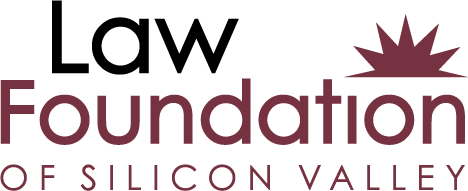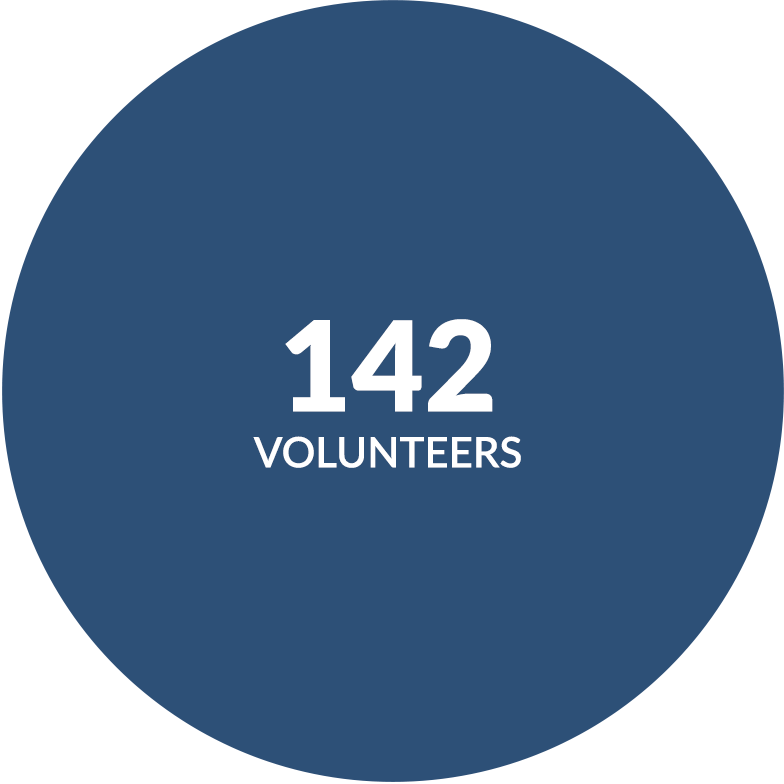
Pro Bono
The Law Foundation’s Pro Bono Program leverages the talent of attorneys and staff from law firms and corporate legal departments to help more clients than we would with just our in-house attorneys. Our pro bono attorney volunteers dedicate their time and expertise to provide high-quality legal services. Our non-attorney pro bono volunteers also provide a wide variety of services to Law Foundation attorneys in areas like paralegal support, website and graphic design, forensics, and data analysis.
Our Pro Bono team has continued our remote pro bono program with the unexpected benefit of having volunteers not only in Santa Clara County but also throughout California and other states. We are thankful to have these new volunteers learn about the Law Foundation and work to help us address our local needs. For example, our Name and Gender Marker Change Project continues to be a robust project where remote pro bono volunteers help transgender clients affirm their identity by legally changing their name and gender marker. In the past year, we assisted approximately 50 clients to affirm their names and gender markers.
The Pro Bono team spent significant time this year expanding its remote projects to reach additional clients in need of legal support. We have placed cases dealing with unique issues such as tax fraud, identity theft, and decedent’s estates with our pro bono partners who provide expertise in these areas.
The Law Foundation’s Pro Bono Program
Small Claims Court Back Rent & Eviction Moratorium Projects
We have also had a renewed focus on housing and rolled out various programs to anticipate tenants’ needs. For example, we ran the Small Claims Court Back Rent Pro Bono Project, where pro bono attorneys advised tenants how to defend themselves in Small Claims Court after they were sued for unpaid rent accumulated during the eviction moratorium. We also ran an Eviction Mediation Pro Bono Project where volunteers represented tenants in a mediation against a represented landlord. This project helped tenants stabilize their housing, reduce their financial obligations, and protect their credit all with the help of promised Covid relief funds.
Over the year, however, we learned that Covid relief was not the safety net panacea we had hoped. With the Covid eviction moratorium and state rent relief coming to an end, we decided to reevaluate our priorities. Since before the pandemic, one of the top issues that tenants contact our office about is return of their security deposit.
Security Deposit Pro Bono Project
In order to build a project, we spent substantial time learning how to best advise tenants by taking cases in-house, observing Small Claims Court, and eventually piloting pro bono cases. The law firm, Cooley, helped us launch the Security Deposit Pro Bono Project with a robust commitment of 20 volunteers to help the first group of clients. Getting money back has been life changing for tenants and they are thrilled we’re now offering this help. We hope to soon expand this project to more pro bono partners and place cases on a rolling basis with remote pro bono attorneys as we have done with the Name & Gender Marker Change Pro Bono Project.
We are incredibly thankful for all our pro bono attorneys and volunteers who have reached out and offered their expertise and time to serve our clients in Santa Clara County.
Protecting Rights Through Access to Government Records
We understand that greater government transparency can lead to a greater say in what our community looks like, how resources are allocated, and how each of us is treated. So when the City of Gilroy denied our records request, we took the matter to court. We prevailed in a writ against Gilroy about whether they have to disclose public records in partnership with Disability Rights Advocates and the law firm Goodwin Procter whose team was led by Law Foundation Board Member, Neel Chatterjee.
The judge found that the City of Gilroy violated the California Public Records Act (CPRA) by not conducting an adequate search for records in response to our request related to police body camera footage of homeless encampment sweeps. Gilroy violated the CPRA by failing to review bodycam footage before asserting a blanket investigative privilege exemption—a designation given to law enforcement records not available to the public because they could endanger a witness or hinder an investigation. We also asked the court to require Gilroy to preserve records for three years, longer than their current document retention policy, but we were unsuccessful. This means, even if there is a litigation hold, Gilroy can continue to destroy documents according to their own policies. Still, as our unhoused neighbors continue to face increased punitive measures from cities across Silicon Valley, our access to city records is a powerful tool in ensuring their rights are upheld and enforced.
Orrick Racial Justice Fellowship
In 2020, spurred by the global protests over George Floyd’s murder at the hands of police, Orrick created their Racial Justice Fellowship with the goal of creating a meaningful impact in their communities. The program pairs senior associates from the firm with organizations working on racial justice issues for a year while continuing to pay each fellow their full salaries. Last year, we were thrilled to have Roza Patterson as a Racial Justice Fellow in our Housing Program. This year, the Law Foundation was honored to once again be part of this innovative public-private partnership in its second year. We were grateful to have Orrick Racial Justice Fellow Natasha Harper work with our Health and Children & Youth teams this year.
Natasha worked in our Health Program supporting clients held in psychiatric facilities for involuntary treatment. She also represented clients who are navigating the complexities of the Social Security Administration. Typically, helping them appeal a denial of disability benefits or helping them challenge overpayment notices. Natasha also worked with the Law Foundation’s Education Rights Team with the influx of expulsions they defend due to the post-Covid mental health crisis affecting youth in schools, many of whom are disproportionately students of color and students with disabilities. For example, Natasha worked with a 12-year-old client who was facing a yearlong expulsion for a serious offense that Natasha was able to get reduced to one semester to limit school interruption. The student and his mother are so thankful to be able to get him back into school sooner than anticipated. We are incredibly thankful for all Natasha did for the Law Foundation and our clients while she worked with us.



